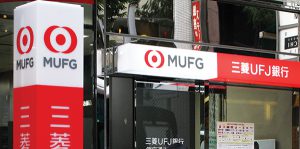Bloomberg
Mitsubishi UFJ Financial Group Inc is bolstering its commodity trade-finance business, helping the industry cope with the surge in liquidity needs following Russia’s invasion of Ukraine.
The Japanese bank is splitting its agriculture and metals desks in London, after setting up shop in Amsterdam earlier this month. It has also stepped up lending to core clients, as war-related dislocations and the pandemic have roiled energy, metals and agriculture markets.
“We don’t have a huge number of clients, but we have a very selective approach,†said Atakan Akkaya, MUFG’s head of commodity finance for Europe, the Middle East and Europe. When liquidity was stretched during recent events, “we were responsive because it was essential to help our clients.â€
MUFG, which has been growing its commodity trade finance business over the years, is stepping up lending to help ease the shipment of raw materials amid roaring inflation. That’s a relief for traders, after banks including BNP Paribas and ABN Amro scaled back or pulled out of the market altogether in recent years, following a series of frauds and losses in the commodities industry.
Following Russia’s invasion of its neighbor, crude climbed to the highest level since 2008, and gas and electricity prices jumped to a record in Europe. Wheat futures in Chicago exceeded levels of the food crisis that started in 2008 and culminated with governments being toppled during the Arab Spring.
That meant traders suddenly required more money to move goods, as well as additional cash collateral to pay exchanges to back their positions in the futures market. In an extreme case, energy giant Uniper SE borrowed almost $10 billion to pay down the so-called margin calls, and the utility is now seeking a bailout from Germany amid an energy-supply crunch.
“Commodity prices are high, which means the credit capacities that we provided to the trading companies are highly utilized,†Akkaya said. “When we have this massive disruption that started with Covid, and then the recent Russia-Ukraine situation, commodity trading became much more essential.â€
In London, David Chernanko will head MUFG’s metals desk and Francois Colombani will oversee agriculture. That’s on top of the already established energy desk headed by Faycal Tazi. The Amsterdam business — which will help serve clients on the continent following the UK’s departure from the European Union — is led by Natalia Kasyanova.
As it expands, MUFG is still being selective and remains one of the most conservative banks in the industry, according to Akkaya. The biggest issue lenders faced in 2019 and 2020, when many retreated, was a lack of understanding of the business, the clients and the risk management needed, he added.
“We didn’t decide from one day to another: Okay, let’s go big and let’s grab the market opportunities and replace ABN and BNP,†he said. “We had a course of growth anyway, so I think what is happening today is maybe people are recognizing more our presence.â€
 The Gulf Time Newspaper One of the finest business newspapers in the UAE brought to you by our professional writers and editors.
The Gulf Time Newspaper One of the finest business newspapers in the UAE brought to you by our professional writers and editors.
